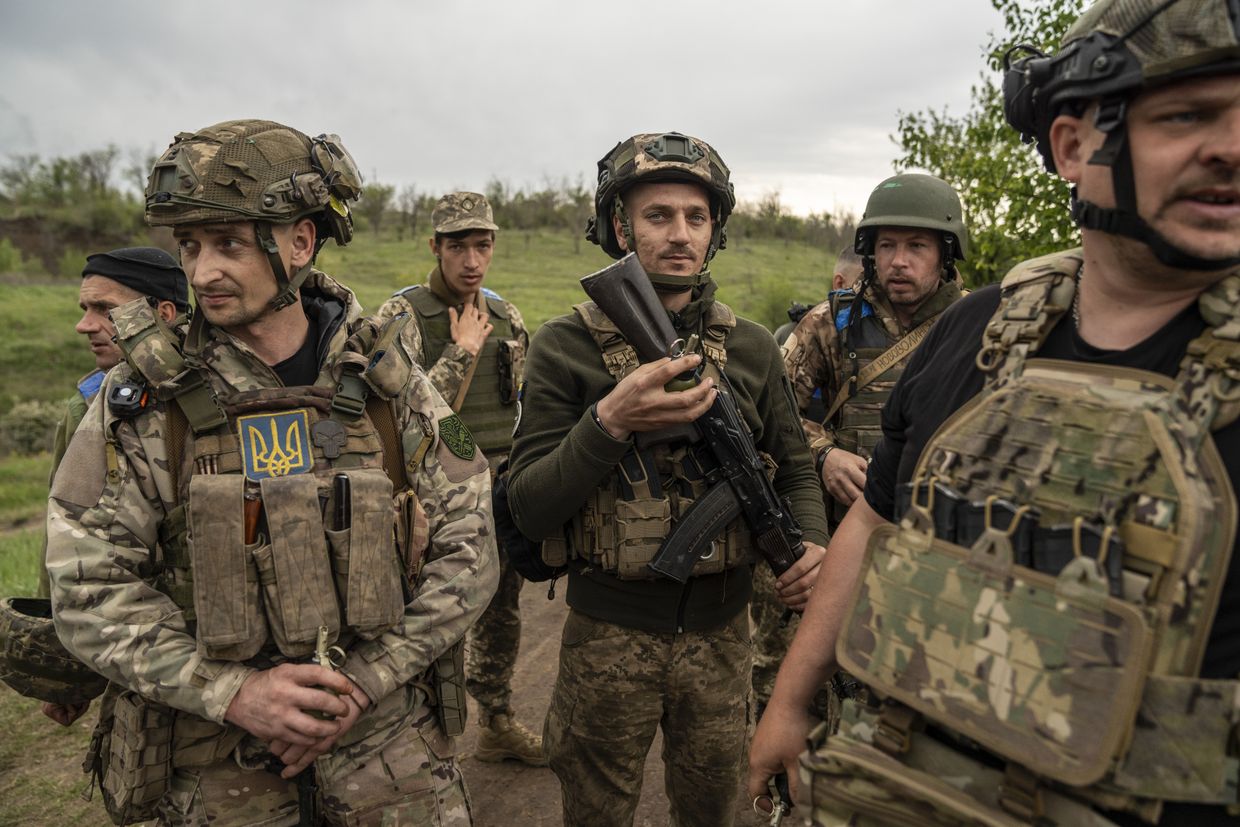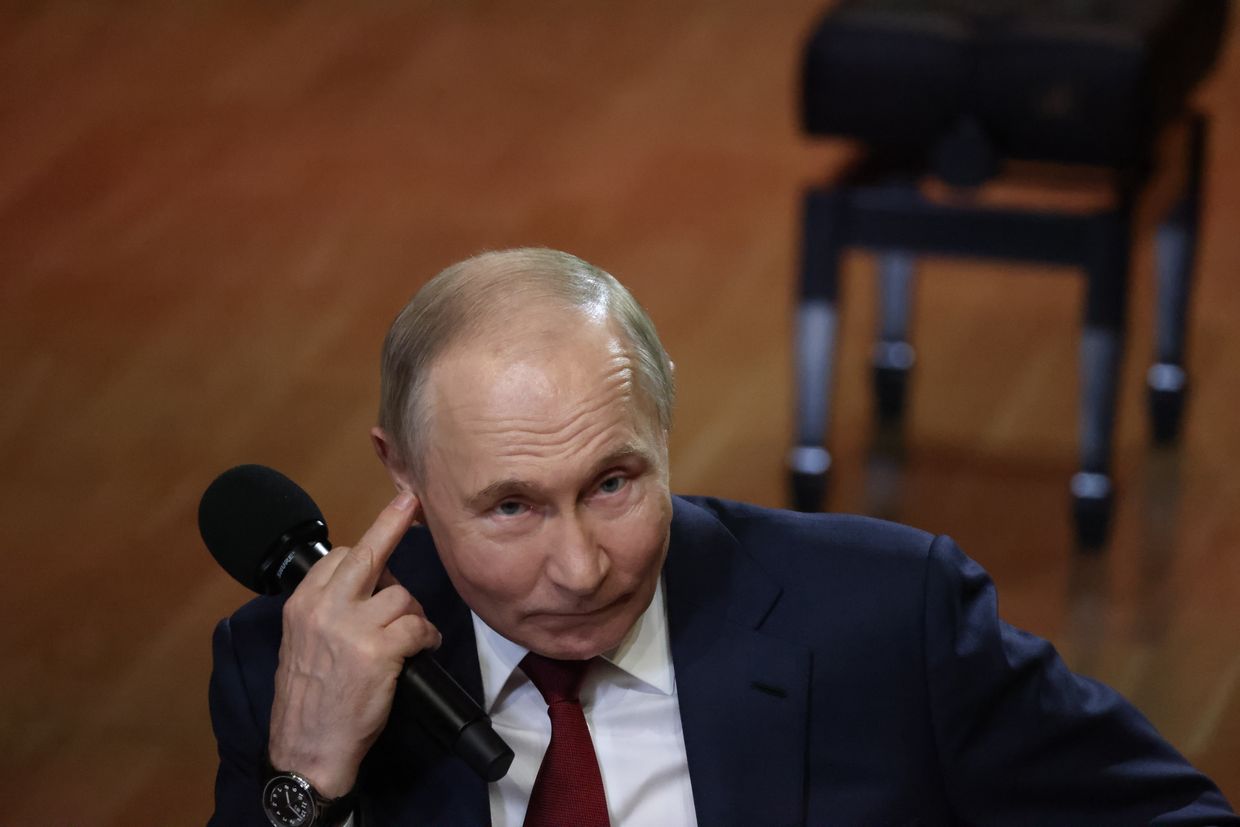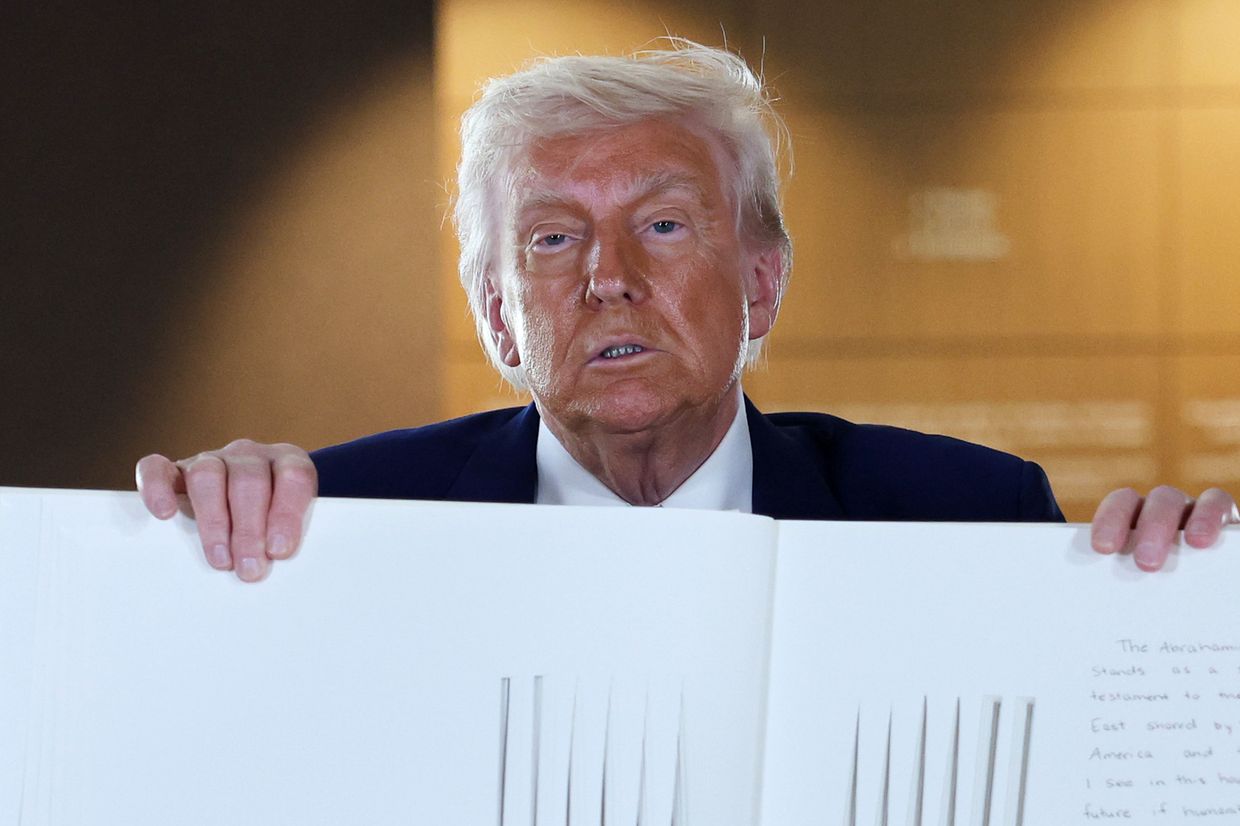At the beginning of the 19th century, one of the founding fathers of modern war studies, the Prussian general and military historian Carl Von Clausewitz, commented on the Napoleonic wars: “The conqueror is still loving peace; he would prefer to walk in our state.”
This remains an observation that applies to most military assaults.
However, the basic idea of Clausewitz was ignored by most Europeans in their interpretation of Moscow’s behavior after the start of the Russian-Ukrainian war in 2014.
A large part of European diplomacy and comments until 2022 are based on the hypothesis that the public insistence of the Kremlin on the tranquility of its intentions towards kyiv implies that one can and should negotiate and moderate the Russian objectives and behavior in Ukraine.
This unfit premise ignored that Russian President Vladimir Putin simply preferred the non -violent takeover of Ukraine to a future uncertain military campaign against kyiv. When, eleven years ago, Russia annexed the Crimea of Ukraine and secretly invaded the east of Ukraine, the war as such had no advantage for Putin and his entourage.
Instead, a hybrid subversion of Ukraine by Russian agents and proxy forces, rather than violent occupation of most Ukrainian land by tens of thousands of regular Russian troops, was the preferred method.
Over the past three years, however, the role of Russia – now on a large scale – Ukraine’s military invasion for the Putin regime has changed. One on the other side, the war itself acquired a stabilizing function for the Russian political system which is based on an increasingly extremist ideology, a militarized economy and a mobilized society. On the other hand, most European politicians, diplomats and experts now have fewer illusions about Putin’s putative love for peace than ten years ago.
On the other hand, the previously adequate perception of Moscow’s strategy in Washington has been replaced, since January 2025, by an approach to escape from the Russian-Ukrainian war.
“ It is a farce ” – Ukrainian soldiers on the “smoked” peace talks in Istanbul
The first direct peace talks over the years between kyiv and Moscow ended on May 16 with Russia again rejecting an unconditional 30-day ceasefire. In turn, Russia demanded that the Ukrainian troops leave four of the country’s regions, which Moscow in part controls. Such a request is a non-starter for Ukraine. Ukrainian

The degree of political naivety of the new American administration, moral indifference and diplomatic dilettantism, during its first four months in mandate, was surprising. Even given the aberrations during the first presidency of Trump of 2017-2021, the insufficient declarations and actions of the last months of the White House concerning the Russian-Ukrainian war sparked shock waves in Europe and elsewhere.
It is suspected that not only strategic infantilism, but also political respect and even personal sympathy, in the Trump administration, for Putin, led the recent zigzags of the United States
Four months of American shuttle diplomacy and mediation attempts have done little. The two -hour conversation results of this week between Putin and US President Donald Trump were also thin. Admittedly, the two presidents spoke, after their telephone speech, of success.
However, there are no tangible results of intense trilateral negotiations between Washington, Moscow and kyiv, and direct interactions between the American and Russian presidents.
Putin clearly indicated that there would be no cease-fire soon.
Russian imperialism will not be neutralized by negotiations, compromises or concessions.
Trump has announced that there should be direct negotiations between Russia and Ukraine, as if the two countries had not negotiated with each other, in different formats, for more than eleven years.
In his commentary on the phone call on Monday, Putin, in fact, embarked on a fishing fishing of Ukraine, the United States and the whole West in two ways.

First, the term that Russia recently introduced and Putin used to label the main objective to be achieved in future negotiations is the “memorandum”. Everyone familiar with the history of post-Soviet Russian-Ukrainian relations will know that there is already a historic “memorandum” linked to security signed by Moscow and kyiv (as well as Washington and London) in the capital of Hungary over 30 years ago.
In the Budapest memorandum of 1994, Moscow guaranteed, in exchange for the kyiv agreement to hand all its nuclear warheads to Russia, that it would not attack Ukraine. Washington and London also assured Kyiv that they respect Ukrainian borders and sovereignty.
After Moscow has demonstrated the letter and spirit of Budapest’s memorandum for eleven years, the Kremlin has now proposed to sign another Russo-Ukrainian “memorandum”.
Second, Putin did not exclude, after talking to Trump that future negotiations with kyiv could lead to a truce. However, the Russian president added that “if appropriate agreements are concluded,” a “possible ceasefire” would only be “for a certain period”. Even if the negotiations succeed, the armistice will be simply temporary.
This Putin warning is an appropriate admission: the economy of the Russian war and the military mobilization of the population are now until now advanced that they cannot be easily arrested. Moscow is no longer able to suddenly stop war fighting. What would happen to the hundreds of thousands of enlisted soldiers, the production of large-scale weapons and intense Ukrainophobic campaigns as well as intense ukrainophobic campaigns in many spheres of Russian social life (education, media, culture, etc.), if there is suddenly permanent peace?
These signals and similar Moscow allow only one conclusion: to end the Russian-Ukrainian war, Russia must undergo a humiliating defeat on the battlefield.
The lesson of the past is, moreover, that Russian military failures have sparked domestic liberalization, such as major reforms after the Crimean War of 1854-1856, or the introduction of semi-constitutionalism after the Russian-Japanese war of 1904-1905.
One of the determinants of Glasnost and Perestroika was the disastrous failure of the Soviet invasion of Afghanistan in 1979-1989.
Russian imperialism will not be neutralized by negotiations, compromises or concessions. Instead, such approaches only promote foreign adventurism in Moscow and military climbing along the borders of Russia. The Kremlin will one day put an end to the expansionist wars of Russia as well as the genocidal terror against civilians in Ukraine and elsewhere. However, for this to happen, the Russian people must first begin to believe that such behavior cannot lead to victory, can trigger an internal collapse and will be resolutely punished.
“ We go back there ‘ – For private war, Trump -Putin calls for another signal to “wake up”
After a two-hour call between US President Donald Trump and Russian President Vladimir Putin, Russia reiterated his refusal for a complete ceasefire in the war in Ukraine while the United States did not respond once again with significant pressure. For observers across Europe, looking at the way negotiations



